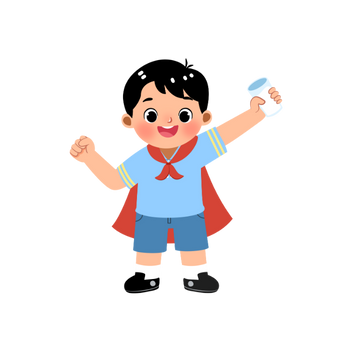Hand washing is a simple and effective way to help prevent diseases, such as colds, flu, and food poisoning.

When to wash your hands
Hand washing should be part of everyone’s daily routine especially before adn after contacting with possible sources of germs and bacteris. Generally, you should wash your hands:
- Often, especially during cold and flu (influenza) season, can reduce your risk of catching or spreading a cold or the flu.
- Before, during, and after preparing food reduces your risk of catching or spreading bacteria that cause food poisoning. Be especially careful to wash before and after preparing poultry, raw eggs, meat, or seafood.
- After going to the bathroom or changing diapers reduces your risk of catching or spreading infectious diseases such as salmonella or hepatitis A.
- Before and after you care for someone who is sick. It’s also important to wash your hands before and after you treat a cut or wound.
- Before you eat is also a good idea.
AFter doing these activities, you should also wash your hands:
- Touching parts of your body that are not clean.
- Using the bathroom.
- Coughing, sneezing or using a handkerchief or disposable tissue.
- Handling or preparing foods, especially after touching raw meat, poultry, fish, shellfish, or eggs.
- Touching an animal, animal waste, pet food, or pet treats.
- Changing diapers, handling garbage, using the phone, or shaking hands.
Proper hand-washing
The U.S. Centers for Disease Control and Prevention recommend the following steps for hand-washing:
- Wet your hands with running water and apply soap.
- Rub your hands together to make a lather. Scrub well for at least 20 seconds.
- Pay special attention to your wrists, the backs of your hands, between your fingers, and under your fingernails.
- Rinse your hands well under running water.
- Use a clean towel to dry your hands, or air-dry your hands.
- You may want to leave the water running while you dry your hands on a paper towel. Then use the paper towel as a barrier between the faucet and your clean hands when you turn off the water.
If soap and water are not available, use a hand sanitizer or alcohol-based hand wipe that contains at least 60% ethyl alcohol or isopropanol. Carry one or both with you when you travel, and keep them in your car or purse. These products can help reduce the number of germs on your hands, but they do not get rid of all types of germs.
If you use sanitizer, rub your hands and fingers until they are dry. You don’t need to use water. The alcohol quickly kills many types of germs on your hands.
Reasons why you should wash your hand
Washing your hands frequently can bring many benefits to you. Here are a few reasons why you should wash your hands:
Germs get onto hands and make people sick
Many germs are transmitted via fece, such as Salmonella, E. coli O157, and norovirus that cause diarrhea, and it can spread some respiratory infections like adenovirus and hand-foot-mouth disease. These germs can get onto your hands and spread these disease if you happen to touch the same object from an infected person, such as touching a doorknob or a toilet paper roll.
Washing hands prevent illnesses and spread of infections to others
Hand washing with soap removes germs from hands. This helps prevent infections because:
- People frequently touch their eyes, nose, and mouth without even realizing it. Germs can get into the body through the eyes, nose, and mouth and make us sick.
- Germs from unwashed hands can get into foods and drinks while people prepare or consume them. Germs can multiply in some types of foods or drinks, under certain conditions, and make people sick.
- Germs from unwashed hands can be transferred to other objects, like handrails, table tops, or toys, and then transferred to another person’s hands.
- Removing germs through hand washing, therefore, helps prevent diarrhea and respiratory infections and may even help prevent skin and eye infections.
Hand washing promotes a healthy community
Teaching people about hand washing helps them and their communities stay healthy. Hand washing education in the community:
- Reduces the number of people who get sick with diarrhea by 31%
- Reduces diarrheal illness in people with weakened immune systems by 58%
- Reduces respiratory illnesses, like colds, in the general population by 16-21%
Hand washing helps battle the rise in antibiotic resistance
Preventing sickness reduces the amount of antibiotics people use and the likelihood that antibiotic resistance will develop. Hand washing can prevent about 30% of diarrhea-related sicknesses and about 20% of respiratory infections (e.g., colds). Antibiotics often are prescribed unnecessarily for these health issues. Reducing the number of these infections by washing hands frequently helps prevent the overuse of antibiotics – the single most important factor leading to antibiotic resistance around the world. Hand washing can also prevent people from getting sick with germs that are already resistant to antibiotics and that can be difficult to treat.
Diseases that are spread via touch
These are some of the most common diseases spread from people to people when they contact by hand or through an infected object or animal.
Noroviruses
Noroviruses cause gastrointestinal infections. Common symptoms of noroviruses are nausea, vomiting, diarrhea and stomach cramps. Noroviruses are transmitted via the fecal-oral route and spread quickly through large groups of people in close quarters, such as cruise ships, military barracks, and day care centers. Norovirus spread can be prevented by thorough hand washing after using the bathroom or changing diapers of a person infected with the disease. Frequent hand washing when in close contact with others, along with avoiding touching your nose and mouth, decreases your chance of becoming infected.
Noroviruses can also be spread by people with the virus handling food and not washing their hands after using the bathroom. Food won’t taste or smell unusual, so there’s no way to know it’s infected.
Nosocomial infections
Many infections are transmitted to hospital patients from other patients or staff members by poor hand washing techniques. If hospital staff members don’t wash between patients, they carry bacteria and viruses from one patient to another. Some difficult to eradicate types of nosocomial infections include methcillin-resistant staphylococcus aureus (MRSA), clostridium difficile (c diff) and Vancomycin resistant enterocci (VRE). Escherichia coli (E. coli) and pseudomonas are also commonly encountered nosocomial infections.
Approximately 10 percent of hospital patients are infected with a nosocomial infection during their stay, reports Stephen Abedon, Ph.D. of the Ohio State University at Mansfield Department of Microbiology, and 20,000 people in the United States die from them each year.
Hepatitis A
Hepatitis A is a viral infection that affects the liver, causing jaundice, lack of appetite, abdominal pain, fever and fatigue. Hepatitis A is often spread via food contaminated by food handlers with the disease who don’t thoroughly wash their hands after using the bathroom. According to the National Institute of Allergy and Infectious Diseases, digesting even microscopic traces of contaminated fecal matter causes transmission of the disease. Hepatitis A can also be transmitted through close personal contact if the person has the bacteria on her hands or other parts of their body that you touch. If you wash your hands before touching your own mouth or nose, you can decrease the risk of getting the disease.
[embed-health-tool-bmi]



















